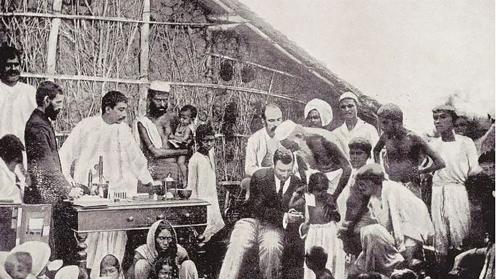309 Empire and Medicine
Instructor: J. Megan Greene
Lecture:
Fulfills:
Category II
KU Core Goal

Empire and Medicine: Disease, Contact, and the Development of Biomedical Knowledge
This course will explore the relationship between empire and medicine. Course readings will examine the ways in which empire and imperialism led to developments in modern biomedicine as well as the ways in which medicine made imperialism possible. The main course topics will be: disease and conquest; colonial appropriation of local medical knowledge; the dissemination of colonial ideas of sanitation and hygiene and the ways those ideas shaped colonial views of the bodies and cultures of colonized peoples; the creation of hospitals in colonized spaces and research institutes in metropolitan spaces; and colonial bodies as subjects or sites of experimentation and discovery. The course will use examples from the western conquest of the Americas in the sixteenth and seventeenth centuries, nineteenth and twentieth century European imperialist expansion into and colonial practices in Africa and Asia, and the Japanese empire in East and Southeast Asia in the early to mid-twentieth century. This course would be great for any student interested in the history of empire or the history of medicine, or for any student interested in how empire and imperialism have shaped many of our everyday institutions and attitudes.
HIST 309 is an 8-week, asynchronous online course. Each week will have a module with a short, recorded lecture, readings, an online discussion, and a very easy online reading quiz. In addition, there will be some sort of reading/writing exercise each week such as annotations of sources in Perusall or short analytical papers on the readings. In some weeks you’ll also write brief written reflections on the actions of the people we are reading about.
3 credits
Category II (non-western)